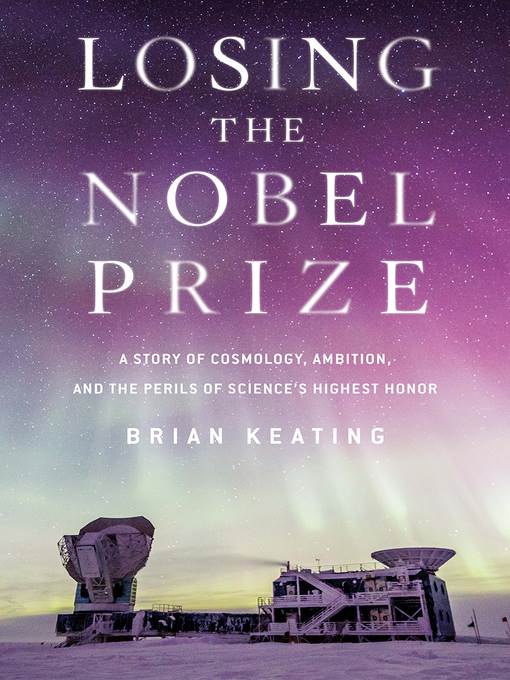
Losing the Nobel Prize
A Story of Cosmology, Ambition, and the Perils of Science's Highest Honor
کتاب های مرتبط
- اطلاعات
- نقد و بررسی
- دیدگاه کاربران
نقد و بررسی

February 15, 2018
An astrophysicist provides "an insider's glimpse into the power of the [Nobel] prize to refract reality, as it did for me, an astronomer who was once seemingly about to read the very prologue of the cosmos."In his first book, Keating (Physics/Univ. of California, San Diego) delivers a sometimes-confusing but always entertaining mixture of autobiography, denunciation of the Nobel Prize, and account of a complex experiment designed to discover evidence of cosmic inflation, an event predicted to follow the beginning of our universe, the Big Bang. In many ways, the Nobel Prize proceedings resemble the World Series. It certainly takes talent to get there, but winning requires many other factors, especially luck. In the case of the Nobel, it usually includes the necessities of being alive, male, skilled at public relations, not young, and--in the sciences--a member of a brilliant team. Keating concludes with suggestions for making the prize more equitable, which the Royal Swedish Academy of Sciences, having already changed Alfred Nobel's original rules, could accept if it chose. The author also delivers an intriguing account of a major ongoing research project. As a postdoctoral researcher, Keating conceived of a telescope to detect polarization of microwaves in the cosmic microwave background, which, if found, would provide the first evidence of cosmic inflation. He alternates between an explanation of the science with the technical and political problems that plagued the experiment. Worldwide headlines followed the announcement of success in 2014, but Keating was barely mentioned because he had been squeezed out. That the announcement was soon retracted does not assuage his resentment, and he blames his exclusion partly on cutthroat competition for a Nobel Prize.Although diagrams abound, cosmic microwave polarization is a difficult subject, and readers who have forgotten their college physics may struggle. Still, most will enjoy this behind-the-scenes view of the dog-eat-dog world of big science and agree that the Nobel Prize needs fixing.
COPYRIGHT(2018) Kirkus Reviews, ALL RIGHTS RESERVED.

April 1, 2018
What caused the Big Bang? Keating (astrophysics, Univ. of California, San Diego) sets out to discover the answer to this cosmological mystery. Following in the footsteps of Galileo, the author's childhood hero, Keating developed special refracting telescopes dubbed BICEP (Background Imaging of Cosmic Extragalactic Polarization) and BICEP2 to collect data which he and his research group hoped would reveal the origins of the universe. During the course of the study, the author and his fellow scientists were derailed by the siren call of the prestigious Nobel Prize when they believed the telescope recorded incontrovertible proof of how the Big Bang began. Yet their Nobel dreams were dashed when a mix of starry-eyed hubris and fear of being scooped by competing experiments caused them to announce their findings prematurely and without having submitted their data for prior peer review. Part biography, part history of cosmology, Keating's engaging and accessible book also includes prescriptive essays on how the awarding of the Nobel Prize can be improved by focusing less on the competition and more on scientific inquiry, collaboration, and sharing credit among all who worked on a project. VERDICT Science enthusiasts and scientists alike will enjoy delving into this exciting extragalactic drama.--Donna Marie Smith, Palm Beach Cty. Lib. Syst., FL
Copyright 2018 Library Journal, LLC Used with permission.

























دیدگاه کاربران